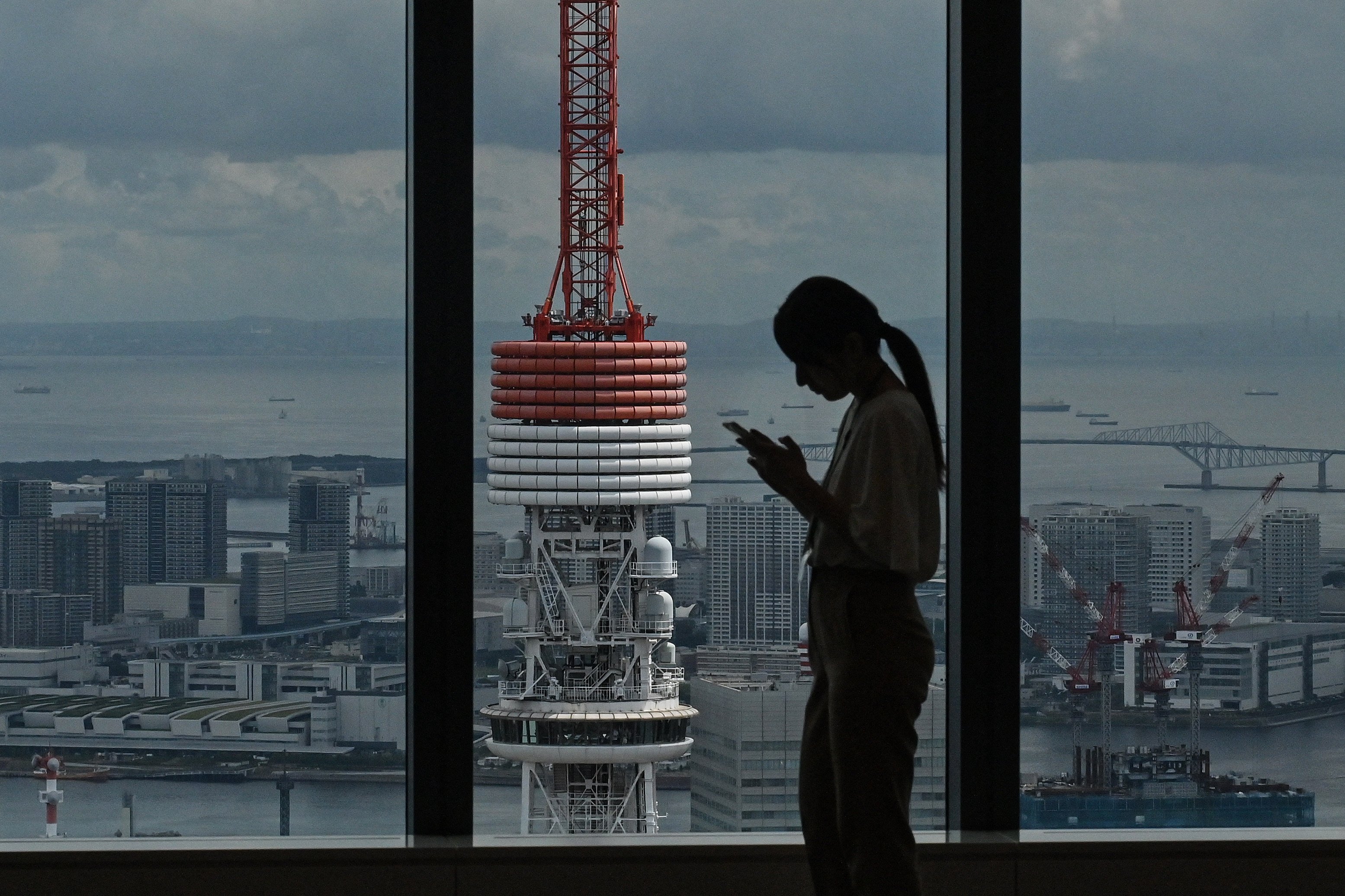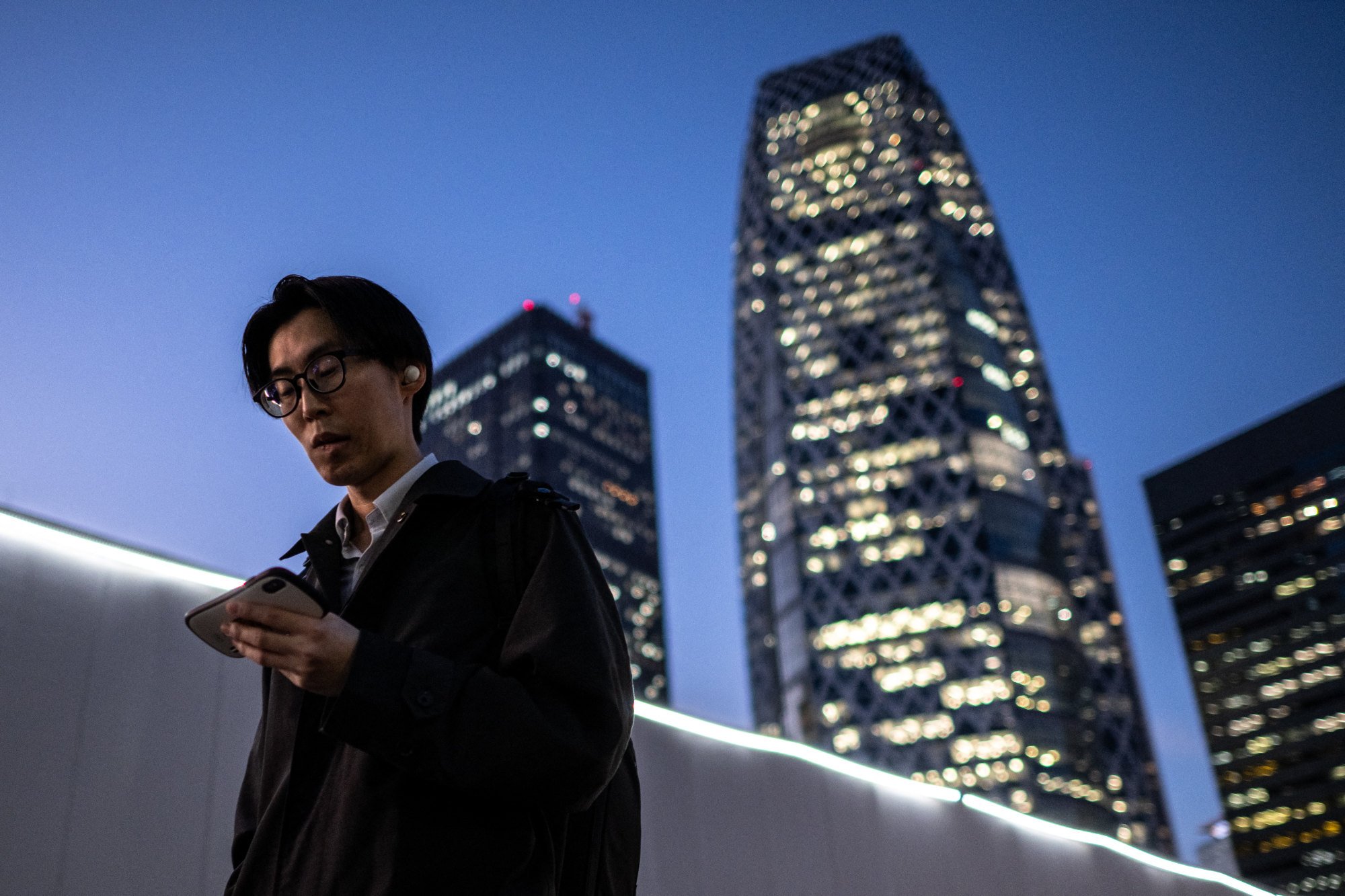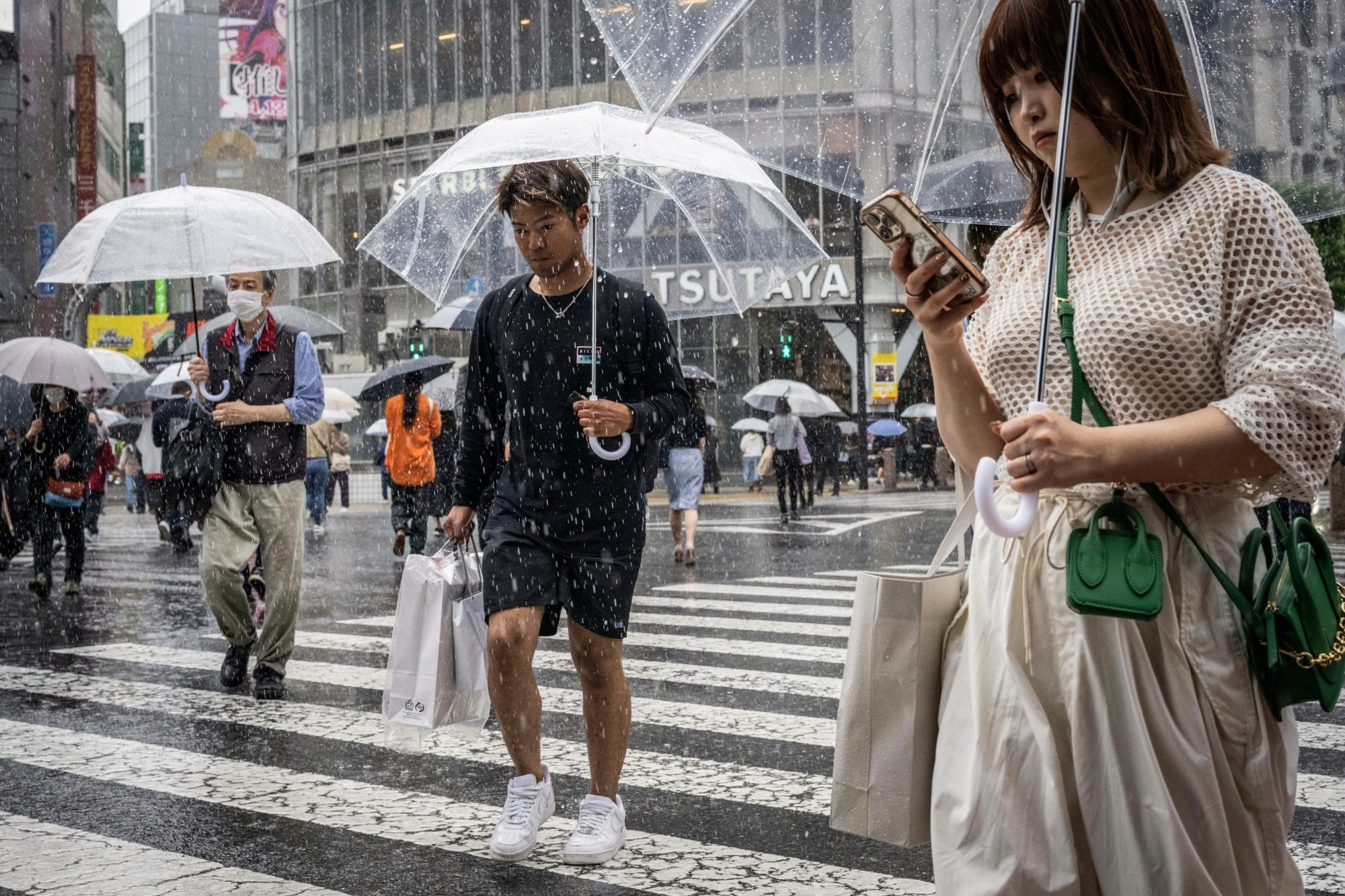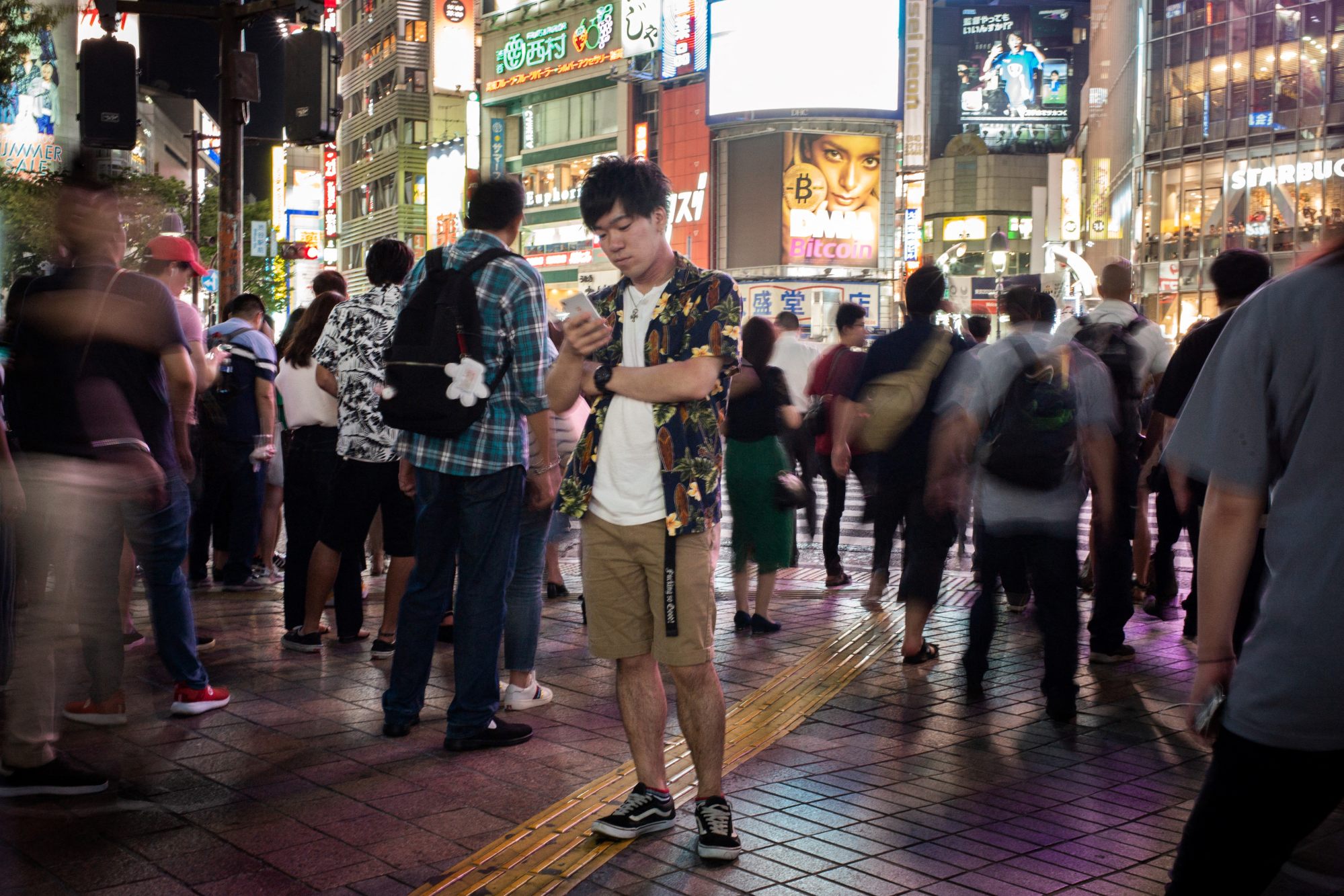In Japan, 6 in 10 admit being addicted to their phones: ‘definitely an issue’
A new survey reveals a surge in smartphone addiction in Japan post-pandemic, undermining well-being – especially among the young

As dusk falls across Tokyo, the glow of mobile phone screens flickers in packed trains, public parks and individual restaurant booths – silent beacons of a society that increasingly cannot look away.
Such scenes playing out in the metropolis and elsewhere in Japan also point to a rising social problem: phone addiction.
A new survey suggests that more than six in 10 Japanese consider themselves addicted to their smartphones – a sharp rise from pre-pandemic levels. Its findings reveal not only how deeply entrenched these devices have become in daily life, but also how their overuse is taking an emotional and physical toll, psychologists say, especially on young people.
“Before the pandemic, I saw very few cases of people concerned about their phone use, but it has definitely become an issue since then,” said Akiko Ohnogi, a doctor of clinical psychology with a practice in Tokyo.

Ohnogi’s consultations shifted online during the global health crisis, she told This Week in Asia, but even after the pandemic had passed and life was returning to normal, children who had become accustomed to an online world were increasingly staying there.
“During the pandemic, mobile phones were one of the main ways that people used to stay in touch with friends, family and work,” Ohnogi said. “Obviously there was no travelling, children were home from school a lot and many people worked from home. But sitting at home and using a device to stay in contact like that was, for some people, addictive.”
The challenge, especially among younger generations, “has been to wean people off their phones and devices,” she said.
“And it needs to be done carefully because some people are now experiencing social anxiety because they are having to speak with people face-to-face.”
The inability to socialise in person hindered many young people’s development, Ohnogi said, as they felt more comfortable saying things online rather than face to face, causing friction with friends and family.
In Japan, a society where people often avoid expressing their emotions out of consideration for others’ feelings, this was even more of an issue, she said – but the perceived safety of being physically distant had enabled people to say things they would never have said out loud previously.

According to the survey, which was published by President Magazine on May 5 and based on responses from 1,425 people, more than 90 per cent of Japanese now own a mobile phone, which for many people has come to control their lives.
Asked if they felt “addicted” to their phone, 60.6 per cent said “very much” or “somewhat”.
By comparison, a study in July 2019 involving 487 people aged 18 to 28 found that 36.4 per cent of male and 41.1 per cent of female respondents were struggling with mobile phone addiction. These pre-pandemic findings, published in the journal Frontiers in Psychiatry, were significantly lower than recent research indicates.
In the latest survey, more than 70 per cent said they took their mobile phone to bed at night – a habit that the report noted could be detrimental to sleep quality.
Nearly 13 per cent blamed their phone use for insufficient rest, while more than half complained of eye fatigue or vision problems. One in three reported stiff shoulders or neck pain related to prolonged use, especially those using devices for five or more hours daily.
About one in three respondents – 32.8 per cent – said they limited their screen time to an hour a day, while slightly over 22 per cent said they used their smartphone for between four and five hours daily.
For many people, there is a huge amount of anxiety linked to what they see on their deviceVickie Skorji, counsellor
“We are seeing a large number of people who are usually connected at night, and that has an impact on their sense of anxiety and, as a consequence, on sleep and other issues,” said Vickie Skorji, director of the Tokyo-based TELL Lifeline counselling service.
She was keen to emphasise, however, that most addictions were not to the actual phone itself.
“It’s not the device, it’s the social media that people belong to and feel they need to constantly monitor in case they need to be ‘liked’, for what is going on in their social circle, whether they are being harassed,” she said. “For many people, there is a huge amount of anxiety linked to what they see on their device and while most of it is happy, there is still a lot of negativity out there.”
Studies had shown that young people were more susceptible than older adults to what was said on social media, she said, worsening pressures that can undermine mental well-being.
“Ten years ago, internet dependency was quite a minor issue, but that’s not the case now,” Skorji said. “This is a problem that first appeared in young people, but now we are finding that it is increasingly affecting adults as well as youth. The difference is that young people are getting support while older generations are not.”

Ohnogi said that in her experience, adults were often modelling unhealthy phone usage.
“I have parents that come to me with their children and say that they are worried because their son or daughter is constantly on the phone, and they are worried they are addicted and [are] having other related problems because they throw a tantrum when the device is taken away,” she said.
“But then I start talking to the teenager and I see mum or dad in the background immediately checking their mobile phone,” she added. “That is part of the problem because the adult is the role model and the child is copying that behaviour.”
Mobile phone addiction can be treated in a similar way to dependencies on alcohol or drugs, Ohnogi says. But gradually reducing usage may not be enough for those who need to go “cold turkey” to break the habit.
Asked whether she thought people would reconnect in person as the pandemic’s effects fade, Ohnogi was non-committal.
“The way the world is going, it seems likely that we will be more and more reliant on technology,” she said. “But there is use and there is overuse, and those are two different things. If adults can be good role models for their children and teach them how to use technology wisely, then I think the kids will follow suit.”